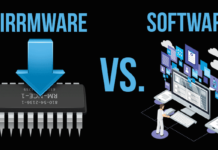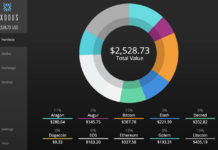The browsing history contains crucial data that can reveal your online activities. This can include Uniform Resources Locators (URLs), cache files, downloaded files, etc.
In fact, you can see the websites you have visited in the browsing history instead of checking your bookmark. In addition, you can choose how long the browser will keep the history.
In this article, we will look at whether the owner of the Wi-Fi you are using can see your browsing history and much more.
Can the Wi-Fi owner track your online activities?
Absolutely yes. However, you can take certain privacy precautions to delete your browsing history and cache file to keep your online activities private.
Thankfully, many browsers provide privacy settings to protect your online searches. For example, some browsers allow you to use the internet without saving cookies or browsing history. Moreover, others have a ‘do not track’ feature that stops the websites you visit from tracking you.
However, no matter your best efforts to keep your online activities private, your internet service provider (ISP) and Wi-Fi owners can track your online movements. For instance, they can see the websites you visit, timestamps, the device you use, etc.
Tips to stop Wi-Fi owners from tracking your browsing history
Use a VPN
A Wifi virtual private network (VPN) is a reliable way to protect your online privacy. First, it will alter your IP address when you connect to any server. Secondly, it will encrypt your data and route your traffic through a secure tunnel. As a result, no one can see what you are doing on the internet.
By changing your IP address, you can also access geo-blocked content. This will be handy for watching movies in other regions on popular streaming sites like Netflix.
Modifying DNS settings
When you visit a website, your device requests the website’s IP address from the domain server system (DNS). This is like an internet phone book that stores IP addresses locally on your device, making it easy to access websites in the future.
Unfortunately, the DNS requests are not encrypted, making them susceptible to manipulation. However, you can use 1.1.1.1 DNS resolver to stay safe from untrusted DNS. It protects DNS with an encryption layer, preventing Wi-Fi owners and your ISP from tracking your web usage.
Use Onion router (Tor)
Tor is a routing technique that helps to protect sensitive data. Using Tor browser is also an excellent way to prevent third parties like Wi-Fi owners and your ISP from tracking your online activities. When you use a Tor browser, your traffic will be encrypted and routed through Tor servers.
Privacy-conscious search engines
Privacy-friendly search engines like DuckDuckGo are a good way to protect your browsing history from Wi-Fi owners. They won’t log your personal information or use cookies to track your behavior. Furthermore, some privacy-friendly search engines will conceal your IP address. That’s recommended plan of action especially when on streaming websites that feature free content to be consumed.
Don’t trust incognito mode
Many browsers offer an incognito mode for private browsing. So, for example, you can visit any website, and it won’t show in your browsing history.
Since no cookies, cache, or login data are saved, you will be like a new visitor whenever you open a website. This can prevent third parties from seeing what you are doing online.
Note: The above privacy methods are legal and somewhat protect your online privacy. However, you shouldn’t assume that you are unreachable to do illegal activities. A tool like a VPN or a browser like Tor makes it difficult but not impossible to reach you. So, authorities will capture you to face the consequences of your actions.
Conclusion
It is almost impossible to remain completely private online, but it is your right to browse the internet privately. However, Wi-Fi owners, your ISP, and other third parties can see your browsing history. Thankfully, the above methods will help to keep your online activities private.
The most effective ways to do this is by using a VPN (Virtual Private Network). A VPN encrypts all of your internet traffic, making it difficult for anyone on the network to see what websites you are visiting. Additionally, a VPN can also hide your IP address, making it difficult for anyone to track your online activity or location. Other methods for hiding your browsing history include using a private browsing mode or clearing your browser history regularly.
Overall, using a VPN is the most effective and secure way to keep your browsing history private and protect your online activity from prying eyes.



















